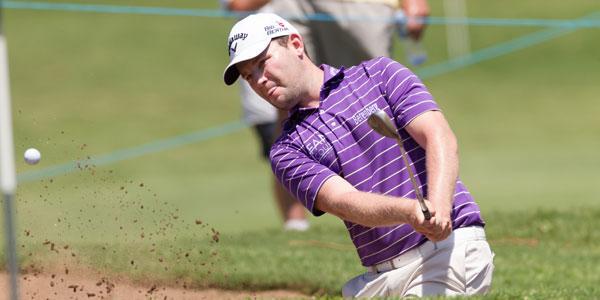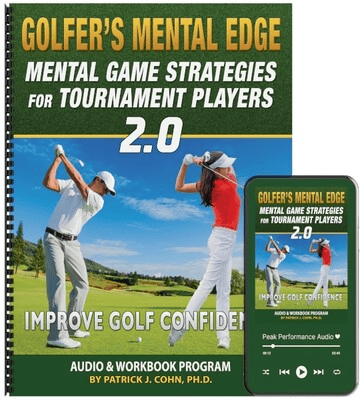
Managing Your Emotions In Golf
How do you handle adversity on the golf course?
Do you take it out on your clubs or are you able to manage your emotions and figure out the best course of action for the next shot?
Imagine you are putting for par on the 17th hole to stay tied for the lead…
You have made this four-foot putt many times before and you feel confident as you line up the putt…
You hit the putt and the ball heads toward the hole but lips out…
Instead of managing your emotions, you become so frustrated that you can’t concentrate and end up double bogeying the hole.
Golf is all about dealing with adversity. Water hazards, sand traps and tricky greens challenge even the most experienced golfer.
There are two responses you can take for adversity: frustration or resolve.
Frustration is a negative response to adversity because you feel unable to change or achieve something.
Resolve is a positive response to adversity.
Resolve doesn’t deny the fact that you missed a shot or putt. Resolve is steadfast action towards your goal despite adversity.
J.B. Holmes is a 32 year-old professional golfer who has resolutely responded to adversity in his personal and professional life. Prior to 2014, Holmes had not recorded a PGA Tour victory since 2008.
In 2011, Holmes underwent brain surgery after he was diagnosed with Chiari malformations. One month later, Holmes had another brain surgery after he had an allergic reaction to the adhesive used on the webbed titanium plate at the base of his skull.
Seventeen months later, Holmes returned to the PGA Tour. In 2013, Holmes’ comeback was halted when he broke his ankle then opted for elbow surgery one month later.
Despite all the adversity, Holmes’ resolve paid dividends at the 2014 Wells Fargo Championship where he won by one stroke.
Holmes’ post-tournament interview provides great advice on resolutely responding to adversity.
Tips on Overcoming Adversity:
You will have negative thoughts but you can’t let yourself buy into those thoughts.
- Holmes: “I never dwelled on it [doubts], but there is always that flash that will come into your head, but I never thought I wasn’t going to be back out here [on the tour], I never let myself go there.”
You must stay focused on the process and what you need to do in the present moment.
- Holmes: “It was just one step at a time… I’m trying to get past that [brain surgery] and live now. I’m going to be in the present.”
You need to find the positive.
- Holmes: “That [broken ankle] kind of gave me a break, literally, and gave me time off from golf and let me reevaluate… I probably wouldn’t be here [Wells Fargo Champion] if I wouldn’t have broke my ankle last year.”
You must believe in your abilities and be determined to achieve your goals.
- Holmes [on his belief he would win a Championship again]: “I felt like I hadn’t accomplished what I felt like I could have been able to, and it was mostly just my mind and myself holding myself back.”

Don’t hold yourself back on the golf course or in life. Resolve yourself to overcome each challenge you face.
Discover mental strategies that junior, collegiate, and tour professionals use to win! Improve your mental game for golf today with The Golfer’s Mental Edge Program!
Related Sports Psychology Articles
- Play Golf Beyond Your Comfort Zone
- Execute Your Range Swing to the Golf Course
- When Golf Round Doesn’t Go Your Way
*Subscribe to The Sports Psychology Podcast on iTunes
*Subscribe to The Sports Psychology Podcast on Spotify
Download a free sports psychology report to improve your mental game!
Learn more about our one-on-one mental game coaching.
Golfer’s Mental Edge

What’s the big sign that your mental game is the weak link in your golf game? When you can’t play consistently as well as when you play a practice or casual round–or your range game is way better than your game on the course. If you suffer from lack of focus, low self-confidence, poor composure or other mental game obstacles on the course, you can’t reach your true potential in golf.
The Golfer’s Mental Edge 2.0 Audio and Workbook program is ideal for any amateur, collegiate, junior, and tour professional golfer.
Golf coaches and instructors would also be wise to teach “The Golfer’s Mental Edge 2.0” principles to their players. This program is perfect for any golfer who wants to improve performance and consistency by managing their mind better on the course.
